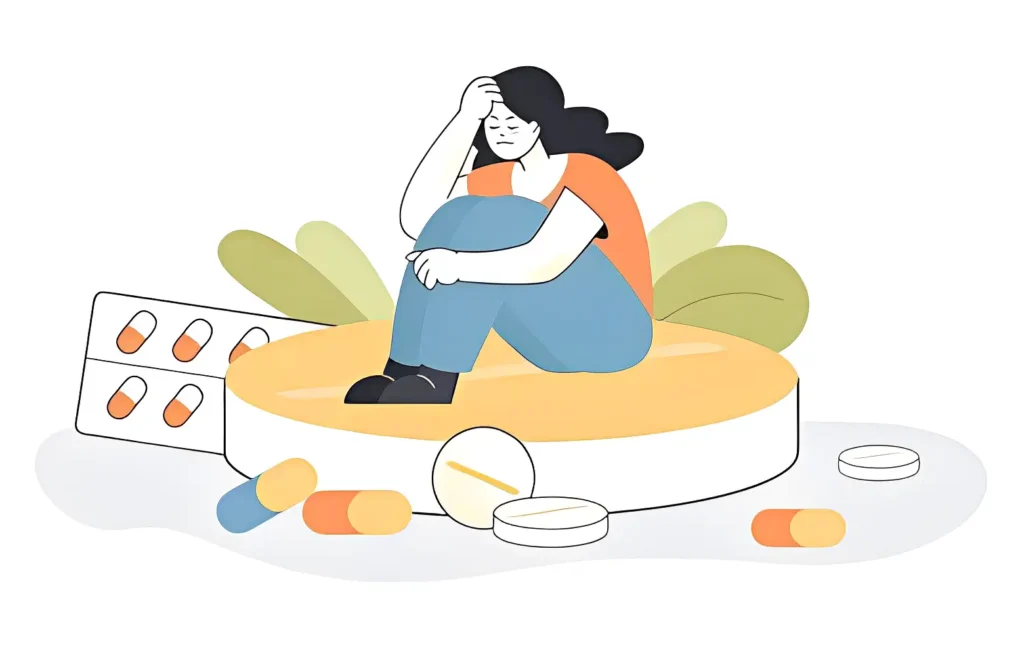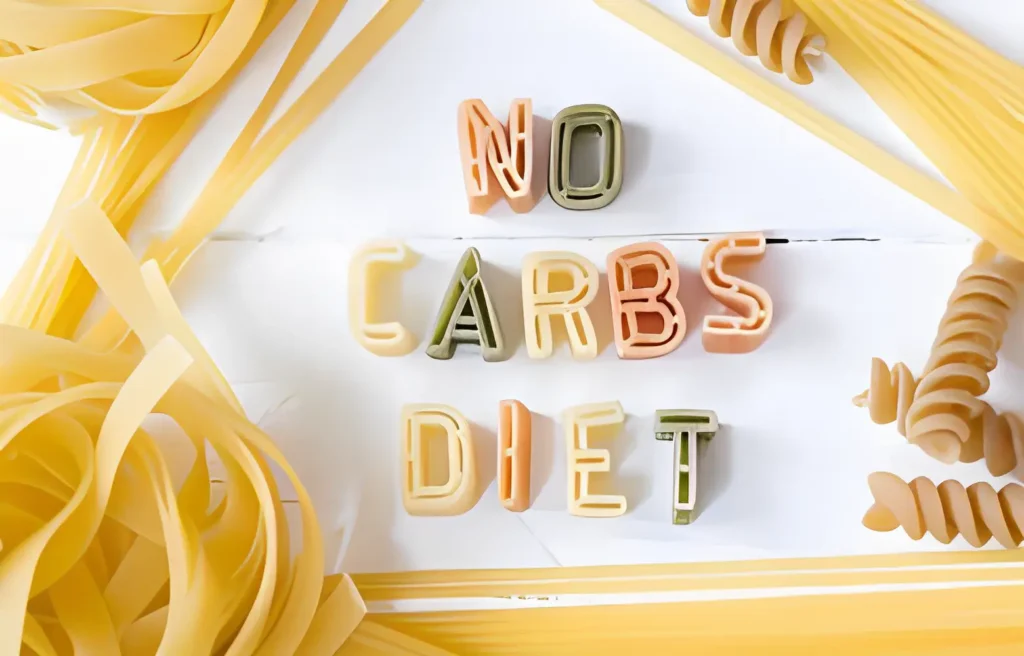Have you ever felt trapped in a cycle of cravings, energy dips, and weight struggles? You’re not alone. Countless people swear by the no-carb diet plan as their key to unlocking weight loss, sharper focus, and even improved health. But is it magic, or is there more to the story?
Before we dive into the intricacies of a no-carb diet plan, let’s address the elephant in the room: what exactly is it? Unlike its cousin, the “low-carb” approach, no-carb goes all in, aiming to eliminate most, if not all, carbohydrates from your plate. Think bread, pasta, sugary drinks, even some fruits – they’re out! But wait, aren’t carbs our body’s primary energy source? Is completely ditching them even possible, let alone safe?
Hold your horses! This comprehensive guide won’t just answer that question, but will:
- Unravel the secrets behind different no-carb approaches: Ketogenic, zero-carb, cyclical – we’ll break down their nuances and potential benefits.
- Go beyond the hype: Dive deep into the science-backed advantages of a no-carb diet, from weight loss to improved blood sugar control.
- Face the truth: We won’t sugarcoat the potential drawbacks, like nutrient deficiencies and social challenges, so you can make informed decisions.
- Equip you for success: Craft your personalized no-carb diet plan with detailed guidelines, delicious recipe ideas, and expert tips.
Remember, every body is unique, and what works for one person might not be ideal for another. This guide is your compass, not a rigid rulebook. So, are you ready to embark on a transformative journey with a no-carb diet plan? Let’s get started!
I. Unveiling the No-Carb World:

Intrigued by the idea of a no-carb diet plan, but unsure where to start? You’re not alone! Navigating the world of no-carb can feel overwhelming, with countless approaches like keto, zero-carb, and cyclical diets vying for your attention. But before you get lost in the carb-confusion, let’s take a deep dive and unveil the secrets behind each one.
1. Ketogenic Diet: Cracking the Ketosis Code
Ever heard of fat turning into fuel? That’s the magic of the ketogenic diet, where you dramatically reduce carbs and focus on healthy fats, forcing your body to switch from burning glucose to ketones (fuel derived from fat). Think improved energy, weight loss, and potentially even sharper brainpower. Sounds too good to be true? While studies show promise for managing weight, blood sugar, and even epilepsy, remember, it’s not a one-size-fits-all solution. Talk to your doctor before diving in, as individual needs and potential side effects like the “keto flu” vary.
2. Zero-Carb Diet: Going All-in with No Exceptions
Ready to take things to the extreme? The zero-carb diet eliminates all forms of carbohydrates, aiming for nearly 100% fat and protein. Sounds intense, right? While potential benefits like improved insulin sensitivity and reduced inflammation exist, the strictness can lead to nutrient deficiencies, social challenges, and long-term sustainability concerns.
3. Cyclical No-Carb Diets: Embracing Flexibility
Don’t fancy ditching carbs forever? Cyclical no-carb diets offer a compromise. Think periods of low-carb or keto eating interspersed with planned “carb-refeeding” phases. Options like the Targeted Ketogenic Diet (TKD) allow you to strategically fuel workouts with carbs, while Carb Backloading aims to maximize muscle growth and performance. Intriguing for athletes and specific goals, but potential downsides like disrupted sleep and digestive issues exist.
Now, let’s move beyond the approaches and unveil the true benefits and drawbacks of a no-carb diet plan.
Unveiling the Benefits: Fact or Fiction?

Weight Loss: It’s no secret that carbs offer quick energy, but ditching them can force your body to burn stored fat – a recipe for weight loss, right? Absolutely! Studies show no-carb diets can be effective for weight management, often leading to greater initial weight loss compared to low-carb approaches. But remember, it’s not just about the magic of no carbs; portion control and healthy choices still matter.
Blood Sugar Control: Struggling with blood sugar spikes? A no-carb diet plan might be a game-changer. By reducing insulin resistance, it can help manage type 2 diabetes and improve overall blood sugar control. However, individual needs and medical supervision are crucial. Don’t ditch your meds without consulting your doctor!
Energy Boost: Feeling sluggish? No carbs might be the answer! By burning fat for fuel, you could experience increased energy levels and sustained focus. But here’s the catch: the initial adaptation phase can lead to fatigue, so give your body time to adjust.
Reduced Inflammation: Chronic inflammation plaguing you? Certain research suggests no-carb diets might offer relief due to their anti-inflammatory properties. Intriguing, but remember, the science is still evolving. Consult your doctor if you have specific inflammatory conditions.
Beyond the headliners: Potential benefits like improved brain health, gut health, and even managing certain neurological conditions have been explored, but the research is still young and individual responses vary. Always proceed with caution and consult your healthcare professional.
But hold on, it’s not all sunshine and rainbows. Let’s unveil the potential drawbacks of a no-carb diet plan too.
Unveiling the Drawbacks: Be Prepared Before You Plunge

Nutrient Deficiencies: Ditching carbs might mean ditching essential nutrients too. Vitamins, minerals, and electrolytes can become scarce, so careful planning, supplementation, and consulting a registered dietitian are crucial.
Keto Flu: Feeling like you’ve got the flu without actually having it? The “keto flu” is a common side effect during the initial adaptation phase, marked by fatigue, headaches, and brain fog. Don’t worry, it usually passes, but staying hydrated and managing electrolyte balance can help ease the discomfort.
Kidney Stone Risk: Heard whispers about increased kidney stone risk on a no-carb diet? There’s some truth to it, but it’s not a guaranteed outcome. Staying hydrated, avoiding oxalate-rich foods, and consulting your doctor if you have pre-existing kidney concerns are key.
Social Challenges: Ditching bread, pasta, and sweets at social gatherings can feel isolating. But fret not! With clear communication and preparation (think bringing your own low-carb dish or suggesting alternative restaurants), you can still navigate social situations gracefully.
Long-Term Sustainability: Can you imagine a life devoid of birthday cake or your grandma’s famous pasta dish forever? Restricting carbs drastically for years might not be realistic. Consider cyclical no-carb approaches or gradual reintroduction of certain carbs to find a sustainable balance that fits your lifestyle.
Remember, a no-carb diet plan isn’t a magic bullet. It has its benefits and drawbacks, and navigating them requires individualized consideration, medical supervision, and a dose of healthy skepticism. Don’t fall prey to sensationalized claims; research, consult your doctor, and listen to your body.
Ready to explore further? Dive deeper into specific approaches, discover delicious no-carb recipes, and connect with supportive communities online. But remember, knowledge is power. So grab your metaphorical magnifying glass, unveil the true potential and limitations of a no-carb diet plan, and make informed choices towards a healthier you.
II. Embarking on Your No-Carb Journey :

Ready to conquer the no-carb world? But wait, where’s the fuel for your adventure? It all starts with stocking your pantry right!
A. Protein Powerhouses:
- Meat & Fish: Opt for quality cuts like grass-fed beef, skin-on chicken, and wild-caught salmon. Sustainability and ethical sourcing matter – research your options!
- Egg-cellent Source: A versatile, budget-friendly protein packed with nutrients.
- Plant-Based Protein: Explore options like tofu, tempeh, lentils, and beans (remember, some beans are higher in carbs). Consider individual goals and carbohydrate tolerance.
B. Veggie Wonderland:
- Leafy Greens: Kale, spinach, and swiss chard are your vitamin K and fiber champs!
- Cruciferous Crew: Broccoli, cauliflower, and Brussels sprouts boast antioxidants and anti-inflammatory benefits.
- Colorful Gems: Bell peppers, asparagus, and zucchini add variety, nutrients, and visual appeal.
C. Healthy Fat Friends:
- Avocados: Monounsaturated fats, fiber, and potassium – a nutritional powerhouse!
- Olive Oil: Drizzle it, cook with it – your heart and taste buds will thank you. 🫒
- Nuts & Seeds: Almonds, walnuts, chia seeds – satiety boosters rich in healthy fats and minerals.
D. Low-Carb Fruits (Use Sparingly):
- Berries: Blueberries, raspberries, and blackberries offer antioxidants with lower sugar content.
- Avocado: Technically a fruit, but packed with healthy fats and minimal carbs.
Remember: Every body is unique, so consult your doctor or a registered dietitian for personalized guidance and consider using online resources or cookbooks specifically designed for no-carb diets.
Now, let’s tackle the “no-go” zone:
A. Evading the Carb Culprits:
- Grains: Bread, pasta, rice – while delicious, they’re high in carbs. Explore low-carb alternatives like cauliflower rice or almond flour bread.
- Sugary Drinks & Snacks: Soda, candy, pastries – loaded with sugar and empty calories. Opt for water, unsweetened tea, and healthy snacks like nuts or cheese. ❌
- Starchy Veggies: Corn, potatoes, peas – higher in carbs compared to non-starchy options. Explore alternatives like cauliflower mash or spaghetti squash. ♀️
- Legumes: Beans and lentils can be tricky depending on your carb goals. Consult with your doctor or a registered dietitian for personalized advice. 🫘
- Most Fruits: While tempting, their sugar content might not align with your no-carb goals. Explore low-carb options like berries in moderation.
Remember: Substitutions are your friends! Craving pizza? Create a low-carb version with a cauliflower crust and your favorite toppings. ➡️
B. Sample Meal Plans for Different Goals:
Weight Loss: Emphasize protein and healthy fats with limited low-carb fruits. Blood Sugar Control: Focus on non-starchy vegetables, lean protein, and healthy fats while monitoring portion sizes. General Health: Prioritize variety, nutrient balance, and incorporating low-carb fruits in moderation.
Remember: Calorie intake still matters! Consult a healthcare professional for personalized calorie recommendations.
C. Stay Hydrated, Stay Happy:
Water is your best friend on a no-carb diet! Aim for 8-10 glasses daily to combat dehydration and potential electrolyte imbalances. Consider unsweetened tea or broth for added flavor.
With mindful planning and the right ingredients, you’re ready to embark on your no-carb journey! Remember, knowledge is power – research, seek guidance when needed, and most importantly, listen to your body. Stay tuned for more tips and tricks on mastering the no-carb lifestyle!
III. Mastering the No-Carb Lifestyle :

Cracked the no-carb code, but still navigating the “how-to” jungle? Don’t worry, we’ve got your back! Here’s how to elevate your no-carb game and become a pro:
A. Whole, Unprocessed Goodness: Your New Mantra
Ever felt lost deciphering food labels? Watch out for sneaky carbs hiding in “sugar alcohols” and “modified starches.” Think whole, unprocessed foods like meat, fish, eggs, and veggies (think leafy greens, broccoli, cauliflower) – your body (and taste buds) will thank you! Now, about those healthy fats…
- Embrace good fats! Drizzle olive oil on roasted veggies, snack on nuts and seeds, or whip up creamy avocado dips. Don’t shy away from healthy fats; they keep you feeling satisfied and provide essential nutrients.
- Spice things up! Plain protein and veggies can get boring fast. Experiment with herbs, spices, marinades, and low-carb sauces to keep your taste buds dancing.
B. Supplementing Smarts: When Food Isn’t Enough
No-carb might mean lower levels of certain nutrients. So, listen to your body and consider supplementation based on bloodwork and individual needs. Vitamin C, calcium, magnesium, and electrolytes are common concerns. Remember, talk to your doctor first! They can recommend specific brands, dosages, and ensure they’re right for you.
C. Snacking Without Sabotage: Your Low-Carb Arsenal
Ditch the chips and dip! Stock your pantry with low-carb snack heroes like nuts, seeds, hard-boiled eggs, vegetable sticks with hummus, keto fat bombs (think delicious combos of nuts, seeds, and healthy fats), or unsweetened yogurt with a sprinkle of berries. Planning and prepping snacks are key. Avoid reaching for sugary temptations when hunger strikes!
D. Meal Planning Mastery: Conquer Cravings Before They Start
Planning meals and snacks is your no-carb secret weapon. Batch cook, utilize leftovers, and try meal planning apps to stay on track. Need inspiration? Dive into online resources for no-carb recipes and meal plans – endless possibilities await!
E. Finding Your Tribe: The Power of Support
Going solo can be tough. Join an online community, forum, or local group focused on no-carb or keto lifestyles. Share recipes, troubleshoot challenges, and find motivation in your fellow carb-conscious comrades. Together, you’ll reach your goals faster and stay inspired!
F. Listen to Your Body: You’re the Expert
Mindful eating is your superpower. Pay attention to hunger cues and adjust portions accordingly. Track your progress (weight, measurements, energy levels) and see how your body responds. Remember, you’re unique! Don’t be afraid to adapt your approach based on your individual needs. And most importantly, consult your healthcare professional throughout your journey, especially if you experience any concerning side effects.
With these tips, you’ll ace the no-carb lifestyle and unlock a healthier, happier you! Just remember, knowledge is power – keep learning, experimenting, and enjoying the journey!
So, is a no-carb diet plan right for you?
The truth is, there’s no one-size-fits-all answer.
Remember:
- Individual needs matter. What works wonders for your friend might not be your cup of tea (or protein shake).
- Seek professional guidance. Consult a doctor or registered dietitian to navigate individual health concerns and create a personalized plan.
- Do your research. Dig deep into different no-carb approaches, understand the science, and weigh the pros and cons carefully.

Ready to embark on your no-carb journey?
- Explore delicious low-carb recipes. Who says healthy can’t be tasty? Experiment, find your favorites, and share them with friends and family.
- Connect with supportive communities. Find online forums, groups, or even local meetups to connect with like-minded individuals and share experiences.
- Focus on progress, not perfection. Small, sustainable changes add up! Don’t beat yourself up over slip-ups; celebrate your wins and keep moving forward.
Taking control of your health and achieving your goals is an empowering journey. Remember, a no-carb diet plan is just one tool in your wellness toolbox. Use it wisely, listen to your body, and embrace the power of informed choices. You’ve got this!
P.S. Still have questions? Feel free to leave a comment below and let’s continue the conversation!
Sources: National Institutes of Health
Check out: Whole 30 Diet: Your Comprehensive Guide to Food Freedom
FAQ:
Is a No-Carb Diet Safe for Everyone?
Will I Still Shed Pounds on Low-Carb?
What’s the Long-Term Deal with No-Carb?
Can No-Carb Help with Specific Health Issues?
How Do I Deal with the Dreaded “Keto Flu”?
What can you eat on a no-carb diet?
Avoid: Grains (bread, pasta, rice), sugary drinks and snacks, starchy vegetables (corn, potatoes, peas), legumes (beans, lentils), most fruits (due to their sugar content).